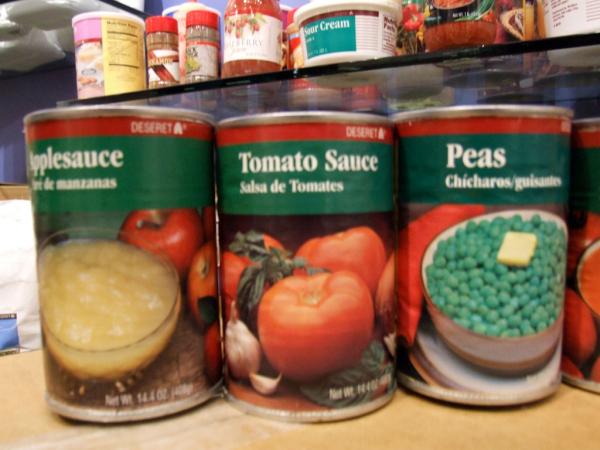The Trump administration has recently proposed a rather drastic change to the Supplemental Nutrition Assistance Program (SNAP). Called "America's Harvest Box" the new program would involve providing SNAP recipients with a box of shelf-stable foods that would account for some significant portion of their benefits. These foods would include things like peanut butter, stable milk, juice, grains, ready-to-eat cereals, and (gasp!) canned meats, fruits and vegetables. While there are many complaints about the proposed changes to the program, one that is really nonsense is that SNAP recipients are being short-changed by being given canned fruits, vegetables, and meats rather than the fresh variety.
For example, Dr. Neal Barnard (animal rights advocate who heads the Physicians' Committee for Responsible Medicine) was quoted here as suggesting that fresh fruits and vegetables be substituted for the canned variety in the Harvest Box. This implies that somehow the fresh versions are better for us. Well, in some cases that could be true, but if you're going to take fresh produce, put it in a box, and send it out to people over some period of time, who says it will still be fresh when they get it? Further, this is misleading, because there's nothing amiss with canned foods. They may taste different from the way you like them or have different textures, but nutritionally speaking, they're still a good buy.
Canning foods to preserve them, at least commercially, dates from the Napoleonic wars when the Frenchman Nicolas Appert developed the process to help Napoleon feed his army (unfortunately for the soldiers, the war was over before the process was perfected). Canning foods relies on heat processing to eliminate any possible pathogens such as botulinum bacteria. Home canning, which is a popular means of saving the summer's garden surplus, has become more popular with the do-it-yourself types.
However, there is still the idea that 'fresh is best' although that can be a tricky meme to prove. In fact, the American Academy of Nutrition and Dietetics (AND) states that nutritionally speaking, "canned foods are as nutritious as cooked fresh, according to research, and perhaps more so if fresh aren't handled properly." Furthermore, the variety is enormous, with over a thousand different items available in our supermarkets.
So while there may be substantive grounds upon which to object to the proposed changes to the SNAP program, including canned foods is surely not one that is based on reality.




